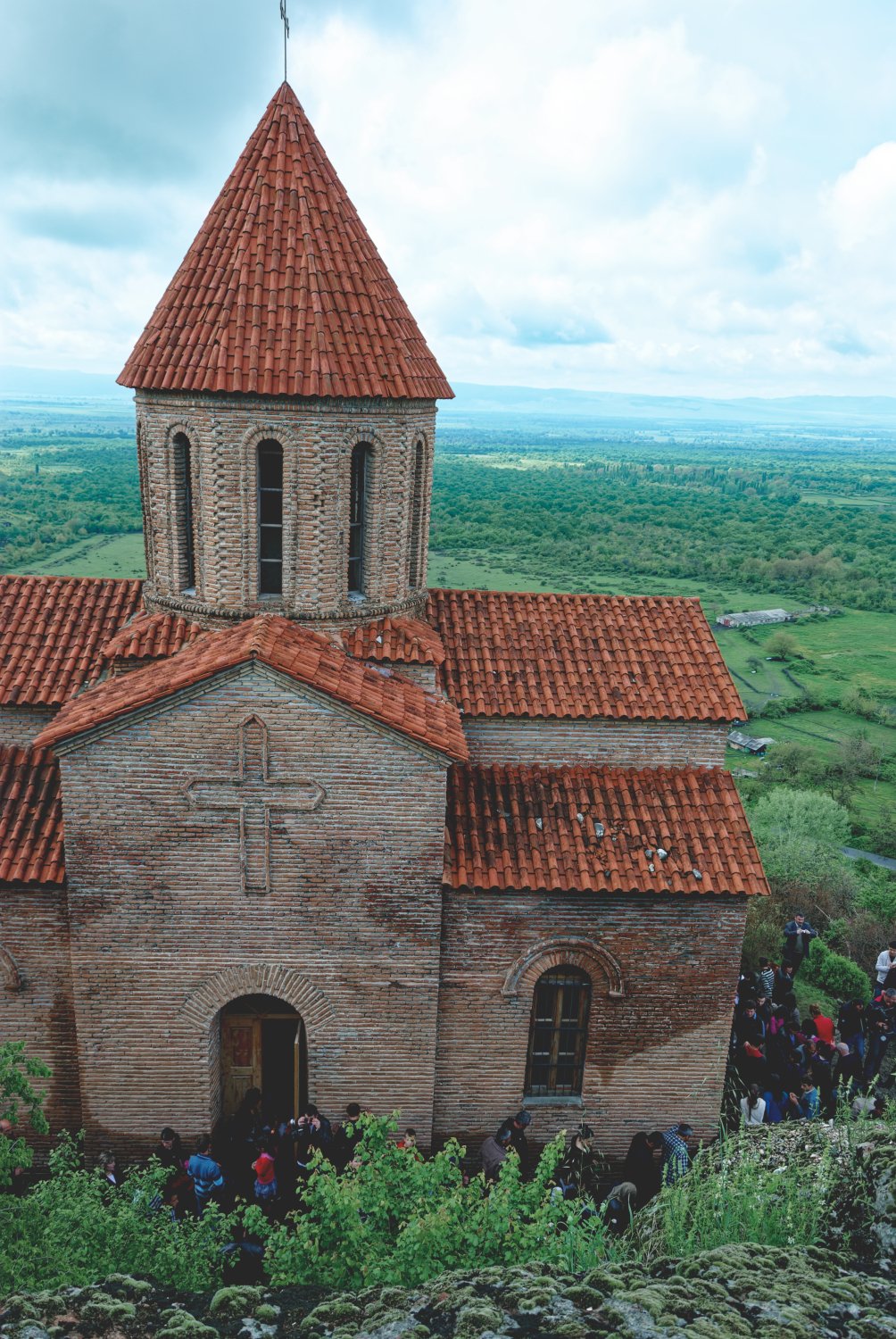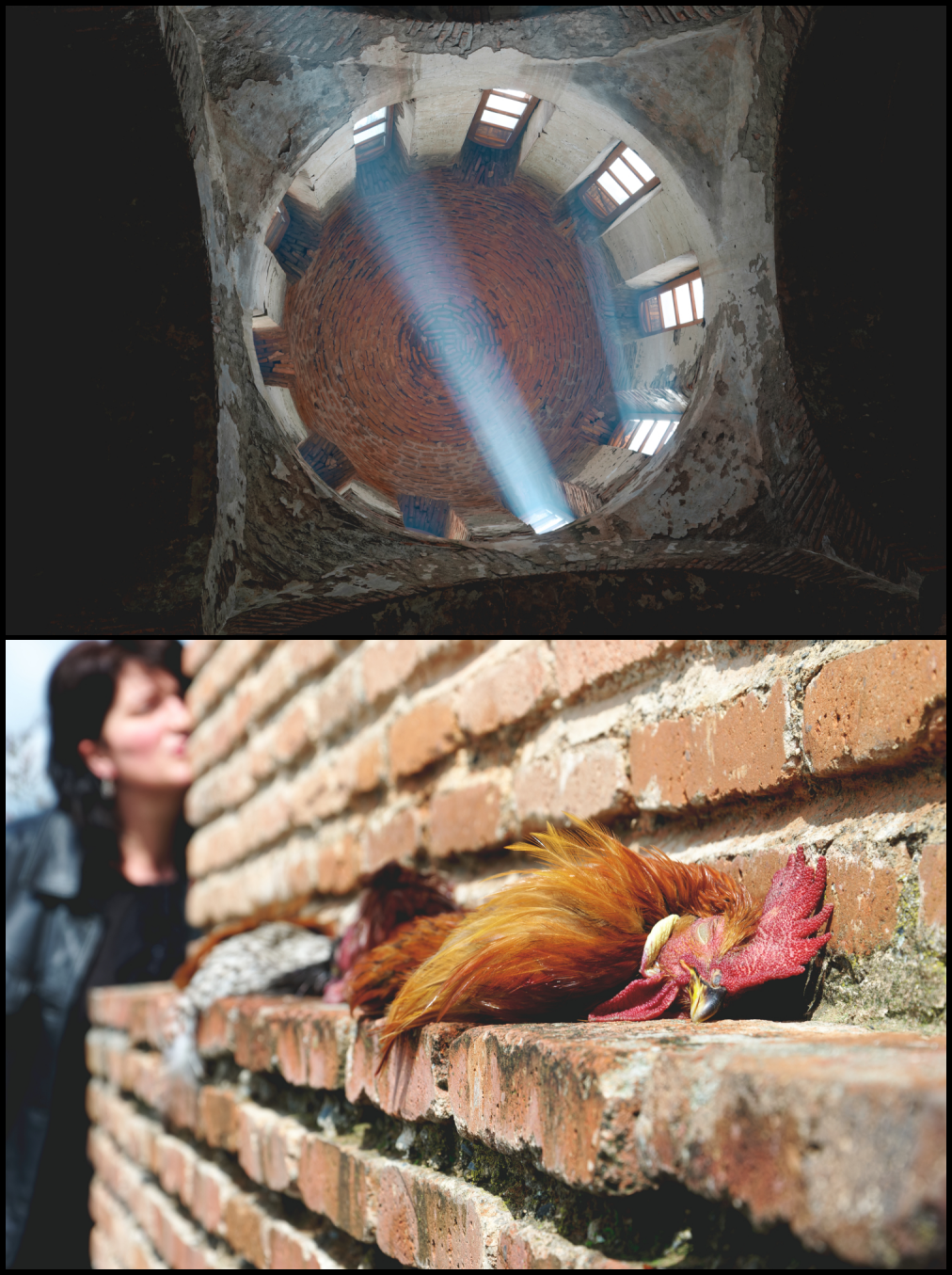131 - Azerbaijan Timeline
*Data furnished by BBC.com (Azerbaijan profile - Timeline).
**Photos by The Nostomaniac
***Short history of Azerbaijan, anyone? Go here.
Key Events:
1828 - Turkmanchay treaty between Russia, Persia divides Azerbaijan. Territory of present-day Azerbaijan becomes part of Russian empire while southern Azerbaijan is part of Persia.
1848-49 - World's first oil well is drilled south of Baku.
1879 - Nobel brothers set up oil-production company.
1918 - Independent Azerbaijani Republic declared.
1920 - Red Army invades; Azerbaijan is declared a Soviet Socialist Republic.
Soviet rule
1922 - Azerbaijan, part of Transcaucasian Soviet Federative Republic, becomes founder member of Soviet Union.
1936 - Transcaucasian Soviet Federative Republic dissolved ; Azerbaijan becomes full republic of Soviet Union.
1967 - Heydar Aliyev becomes head of Azerbaijani KGB; becomes head of Azerbaijani Communist Party in 1969.
1982 - Heydar Aliyev becomes full member of Soviet Politburo and first deputy chairman of USSR Council of Ministers.
1987 - Heydar Aliyev leaves Politburo and Council of Ministers.Whatever it is, the way you tell your story online can make all the difference.
Soviet era ends in violence
1988 - Nagorno-Karabakh region seeks to become part of Armenia. Ethnic Azeris begin to leave Karabakh and Armenia and ethnic Armenians leave Azerbaijan. At least 26 ethnic Armenians and six Azeris are killed in violence in Azerbaijani town of Sumqayit.
1990 - Ethnic strife between Armenians and Azeris escalates. Azeri nationalist Popular Front rallies support amid growing disorder.
Trouble flares along border between Nakhichevan exclave and Iran as rioters destroy border installations. Tension eases after Soviet and Iranian authorities agree to ease restrictions on crossing between the two countries.
Dozens die in interethnic violence in Baku. Popular Front demonstrators demand resignation of communist authorities. Soviet troops use force to end unrest, killing at least 100 people. Azeri nationalists put death toll at several hundred.
Ayaz Mutallibov becomes Azeri Communist Party leader.
Communist Party later retains power in multiparty elections but parliament has an opposition for the first time.
1991 - After failed coup attempt in Moscow, Azerbaijani parliament votes to restore independence. In elections boycotted by opposition, Mr Mutallibov becomes president.
Heydar Aliyev becomes leader of the Azerbaijani exclave of Nakhichevan.
Leadership of Nagorno-Karabakh declares the region an independent republic. Inter-ethnic hostilities escalate.
War over Karabakh
1992 - Hostilities develop into full-scale war over Karabakh. More than 600 Azeris are killed as they flee an Armenian attack on Karabakh town of Khojali. Ethnic Armenian forces break through Azerbaijani territory to create a corridor linking Armenia to Karabakh.
President Ayaz Mutallibov resigns. Abulfaz Elchibey, leader of nationalist People's Front, becomes president in Azerbaijan's first contested elections.
1993 - Armenia launches offensive into Azerbaijani territory around Karabakh.
Rebel army commander Col Surat Huseynov takes control of Azerbaijan's second city, Ganja, and marches on Baku. President Elchibey invites Aliyev to return to the capital and subsequently flees.
Mr Aliyev assumes leadership. Mr Huseynov becomes prime minister and is placed in charge of defence and security forces. Referendum indicates massive loss of public confidence in Elchibey. Aliyev wins presidential elections boycotted by Elchibey's People's Front.
1994 - Armenia, Azerbaijan and Nagorno-Karabakh sign a ceasefire accord. Ethnic Armenians remain in control of Karabakh and a swathe of Azerbaijani territory around it.
Mr Aliyev cracks down hard on People's Front. Azerbaijani forces mount Karabakh counteroffensive.
Armenia, Azerbaijan and Nagorno-Karabakh sign a ceasefire. Ethnic Armenians remain in control of Karabakh and a swathe of Azerbaijani territory around it.
Prime Minister Huseynov is dismissed and flees to Russia after accusations of involvement in an attempted coup.
War over Karabakh
1992 - Hostilities develop into full-scale war over Karabakh. More than 600 Azeris are killed as they flee an Armenian attack on Karabakh town of Khojali. Ethnic Armenian forces break through Azerbaijani territory to create a corridor linking Armenia to Karabakh.
President Ayaz Mutallibov resigns. Abulfaz Elchibey, leader of nationalist People's Front, becomes president in Azerbaijan's first contested elections.
1993 - Armenia launches offensive into Azerbaijani territory around Karabakh.
Rebel army commander Col Surat Huseynov takes control of Azerbaijan's second city, Ganja, and marches on Baku. President Elchibey invites Aliyev to return to the capital and subsequently flees.
Mr Aliyev assumes leadership. Mr Huseynov becomes prime minister and is placed in charge of defence and security forces. Referendum indicates massive loss of public confidence in Elchibey. Aliyev wins presidential elections boycotted by Elchibey's People's Front.
1994 - Armenia, Azerbaijan and Nagorno-Karabakh sign a ceasefire accord. Ethnic Armenians remain in control of Karabakh and a swathe of Azerbaijani territory around it.
Mr Aliyev cracks down hard on People's Front. Azerbaijani forces mount Karabakh counteroffensive.
Armenia, Azerbaijan and Nagorno-Karabakh sign a ceasefire. Ethnic Armenians remain in control of Karabakh and a swathe of Azerbaijani territory around it.
Prime Minister Huseynov is dismissed and flees to Russia after accusations of involvement in an attempted coup.
Into the new millennium
2001 - Azerbaijan becomes full member of Council of Europe, though council officials criticise it over human rights record.
US lifts aid ban, imposed during Nagorno-Karabakh conflict, after Azerbaijan provides airspace and intelligence after 11 September al-Qaeda attacks in US.
Azerbaijan, Georgia and Turkey reach agreement on oil and gas pipelines linking Caspian fields with Turkey.
Azerbaijan officially shifts to the Latin alphabet for the Azeri language, in the fourth alphabet change in a century.
2002 September - Construction work starts on multi-billion-dollar pipeline to carry Caspian oil from Azerbaijan to Turkey via Georgia.
Political succession
2003 August - Aliyev appoints his son, Ilham, as prime minister.
2003 October - Ilham Aliyev wins landslide victory in presidential poll said by observers not to reach international standards. Opposition protests met with police violence; hundreds arrested.
2003 December - Heydar Aliyev dies in a US hospital, aged 80. He was being treated for heart and kidney problems.
2005 March - Thousands mourn after journalist Elmar Huseynov, an outspoken critic of the authorities, is shot dead in Baku.
2005 November - Ruling New Azerbaijan Party wins parliamentary elections by large margin. International observers say vote failed to meet democratic standards. Police use violence to disperse opposition protesters demanding a rerun.
2006 July - Baku-Tbilisi-Ceyhan pipeline formally opened at ceremony in Turkey after Caspian oil starts flowing along it.
2007 January - Azerbaijani state oil company stops pumping oil to Russia in dispute over energy prices.
2008 March - Fighting breaks out in Nagorno-Karabakh. Azerbaijan and Armenia accuse each other of starting the clashes, which leave several dead on each side.
Ilham Aliyev re-elected
2008 October - Ilham Aliyev wins a second term as president. Western observers say conduct of the election, boycotted by the main opposition parties, was an improvement on previous votes but still fell short of democratic standards.
2008 November - Armenia and Azerbaijan sign a joint agreement aimed at intensifying efforts to resolve their dispute over territory of Nagorno-Karabakh.
2009 March - Referendum initiative to abolish a law limiting the president to two terms is passed with nearly 92% of the vote; the move means President Ilham Aliyev would be able to stand for a third term.Whatever it is, the way you tell your story online can make all the difference.
2009 November - Azerbaijani-Armenian talks on Nagorno-Karabakh end without achieving major breakthrough.
2010 April - Head of the Armenian church, Garegin II, makes first visit by senior Armenian cleric since the Nagorno-Karabakh conflict in the 1990s.
2010 November - President Aliyev's New Azerbaijan Party (NAP) wins increased majority in parliamentary elections; European monitors said the vote was flawed.
2010 September - BP announces plans for gas pipeline from Azerbaijan to Europe, by-passing Russia.
2011 May - Azerbaijan wins Eurovision Song Contest. International human rights groups launch boycott campaign of 2012 contest in Azerbaijan over the country's human rights record.
2012 May - Azerbaijan hosts the Eurovision song contest. Anti-government protestors staged demonstrations to coincide with the event.
2012 June - Clashes on the Azerbaijani-Armenian border result in the death of soldiers on both sides.
2012 September - Armenian-Azerbaijani tension flares after Azerbaijan pardons and gives a hero's welcome to an army officer who was jailed in Hungary for killing an Armenian colleague.
2013 October - Presidential elections. President Aliyev wins another third five-year term.
2014 August - Deadly clashes between troops from Azerbaijan and Armenia over the disputed enclave of Nagorno-Karabakh.
2014 September - British Petroleum announces start of construction of Southern Gas Corridor to deliver gas to Europe directly, bypassing Russia. Pipelines scheduled for completion in 2018.Whatever it is, the way you tell your story online can make all the difference.
Pressure on media
2014 October - Non-governmental organisations complain of official harassment, seeing it as the culmination of months of measures against the opposition and independent media.
2014 December - Baku shuts down the Azerbaijani service of US-funded Radio Free Europe / Radio Liberty, accusing it of working for a foreign security service. The US State Department expresses concern over what it describes as a crackdown on civil society.
2015 March - The human rights group Amnesty International says dozens of pro-democracy activists, journalists and lawyers have been detained by the authorities in past year in an effort to quash dissent. The government denies the arrests are politically motivated.
2015 June - First European Games open in Baku. Azerbaijan was the sole bidder to host the event, attracting criticism at home over the cost and abroad over its rights record.
2015 November - Ruling New Azerbaijan Party wins parliamentary elections, which main opposition parties boycotted in protest at arrests of activists and reporters. The Organisation for Security and Cooperation in Europe leading election monitoring group declined to send observers.
2016 April - Dozens killed in flare-up of fighting in the enclave of Nagorno-Karabakh.
2016 September - Voters in a referendum approve constitutional changes which extend the powers of the president.
2016 December - Clashes break out on the border with Armenia, killing four Armenian troops and one Azeri.
2017 February - President Aliyev appoints his wife, Mehriban, as first vice-president.
2017 February - Fighting flares up in Nagorno-Karabakh between the Azerbaijani army and ethnic Armenian troops along the line separating them.
2017 May - Opposition blogger Mehman Galandarov dies in detention.
2017 September - Azerbaijan denies reports by a group of international newspapers that it ran a secret slush fund - dubbed the "Azerbaijan Laundromat" - to pay off European politicians and launder money.
2020 September-November - Azerbaijan scores a major military success when it recaptures territory in and around Nagorno-Karabakh. Some 3,000 Azerbaijani soldiers and 4,000 Armenian soldiers are killed in the conflict.
2022 September - Fighting breaks out between Armenian and Azerbaijani troops along the Armenia-Azerbaijan border, about 50 soldiers on each side are killed in the clashes.Whatever it is, the way you tell your story online can make all the difference.








